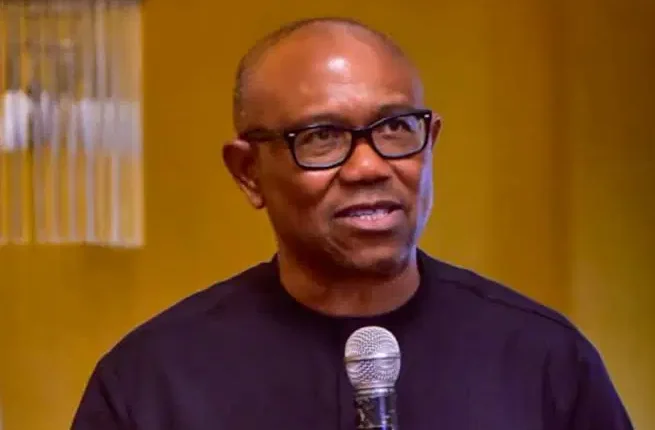Peter Obi Links Nigeria’s Insecurity to Poverty, Slams Leadership Failures
In a bold and deeply reflective statement, former presidential candidate and Labour Party stalwart, Peter Obi, has drawn a direct line between Nigeria’s deepening security crisis and the entrenched poverty that afflicts millions across the country—blaming successive governments for prioritising vanity projects over human development.
Obi, a former governor of Anambra State, while writing on his X-handle declared that security cannot be achieved by force alone, but through intentional investments in education, healthcare, agriculture, and poverty eradication—areas he described as “national security imperatives.”
“Every naira we invest in people today is one less bullet we need to fire tomorrow,” Obi said. “That is the real meaning of security.”
Citing shocking statistics, Obi reminded the nation that over 100 million Nigerians live in extreme poverty, with more than 140 million trapped in multidimensional poverty—a crisis he described as a “ticking time bomb” that no amount of military might can defuse.
He backed his argument by quoting the Chief of Defence Staff, General Christopher Musa, who recently admitted:
“You cannot fight insecurity with bullets alone. You must address the root causes—poverty, unemployment, lack of education, and injustice.”
Obi praised the military chief’s candour, noting that even the armed forces understand that the fight against insecurity must begin in classrooms, clinics, and farms—not just in battlefields.
In a searing indictment of Nigeria’s leadership trajectory, Obi accused past and present administrations of chasing white elephant projects and looting public funds, while ignoring the foundational needs of the people.
“The criminality we see today is not a coincidence—it’s the result of years of misgovernance, corruption, and neglect,” he said.
Quoting the late Mallam Aminu Kano, Obi said, “The problem with Nigeria is that we abandon the masses and then criminalise their hunger.” He warned that children denied education today will become vulnerable to radicalisation and extremism tomorrow.
Drawing inspiration from Mother Teresa’s call to compassion, Obi urged leaders at all levels to see every Nigerian as a human being deserving of dignity, justice, and opportunity—not as a statistic to be policed.
“We cannot keep reacting to self-inflicted crises. It is time to break the cycle,” he said. “A new Nigeria is not just possible—it is urgent.”
Obi’s statement has since ignited renewed calls on social media for a shift from force-based security models to people-centred development as the cornerstone of national peace and progress.

